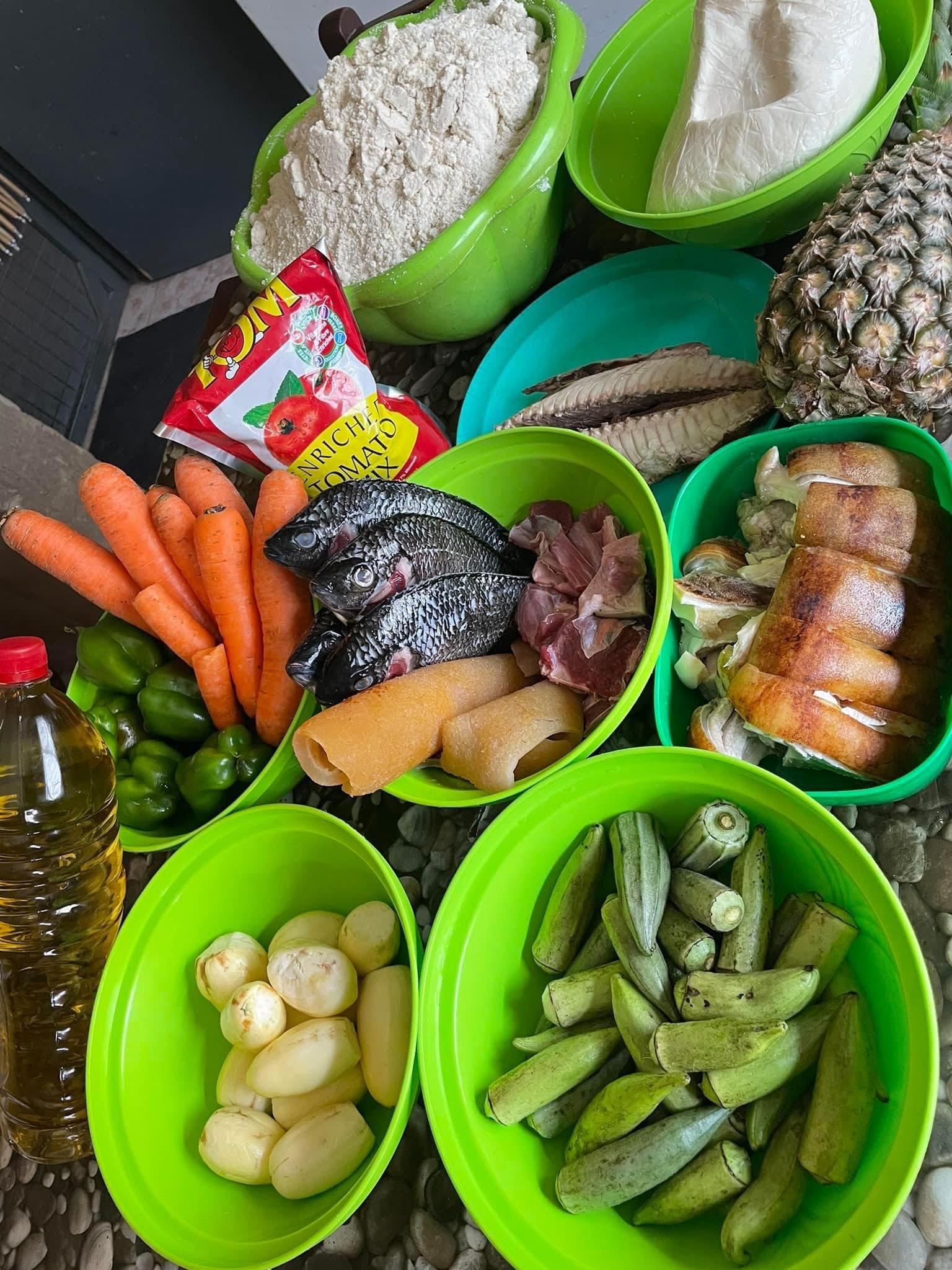On a hot afternoon, hundreds of students of the Nima Cluster of Schools in Accra, Ghana, dashed out of their classrooms for a midday break.
Usually, they enjoy a free lunch of rice and stew from a national school food program.
But school cooks are currently on strike, as of last Monday, to protest unpaid wages and inadequate grants — leaving many kids with hunger pains.
Related: As global oil prices surge, some African countries may see a silver lining
Going to school without a free lunch has been hard on students like 9-year-old Frederick Anaaba.
“There is no food at home. And the people who bring us food have not been coming. If sir is teaching, I cannot concentrate because my stomach will be paining me.”
“There is no food at home. And the people who bring us food have not been coming,” he said. “If sir is teaching, I cannot concentrate because my stomach will be paining me.”
Nearly 4 million children attending Ghana’s 10,000 public schools rely on a free school lunch.
For many, it’s the only meal they get in a day. Without it, they may risk sickness or even death. Some also consider dropping out of school.
The country’s national school food program was launched in 2005 to help alleviate poverty and enhance food security in Ghana. The program also encourages the use of locally sourced raw materials, supporting sustainability for area food producers.
But food prices in Ghana have more than tripled this year. Transportation costs have also soared. Last month, the country’s inflation rate climbed to the highest level in more than 18 years at 23.6%.
The Russia-Ukraine conflict has caused global prices for grains, cooking oils, fuel, fertilizer and other commodities to shoot up. The United Nations has warned that this will exacerbate food, energy and economic crises in poor nations.

Ghana’s school children are on the receiving end of this long chain of consequences.
Samuel Amponsah, a social studies teacher at the Nima Cluster of Schools, said that the strike is hampering academic work.
“The school feeding program enables the students to show up at school prepared to learn. But since the caterers stopped cooking, we are seeing more absenteeism,” he said.
This has other implications, he added: “It can reverse all the progress we have made in education, especially at the primary school level. The government should try and fix this as soon as possible.”
‘No increment, no cooking’
Ghanaian caterers, who each have independent contracts with the government, are asking the government to raise the daily feeding grant from about 12 cents per child to about 39 cents.
They also want the over $30 million owed to about 11,000 members to be paid as soon as possible.
The caterers will not return to work until their demands are met, according to Helena Appiah, general secretary of the Ghana School Feeding Caterers Association.
The cooks prepare lunches from home and bear the responsibility to transport it to the various schools under contract with them, she said.
But the rising price of transportation and gas has become cost-prohibitive.
Appiah said that some association members who took out loans to be able to provide food for the schoolchildren now face harassment by their creditors.
Several meetings with the government on the matter so far have been unfruitful.
“Nothing good came out of the meetings. They said they can’t help us. They are not in the capacity to help us, so our decision is no increment, no cooking.”
“Nothing good came out of the meetings. They said they can’t help us,” she said. “They are not in the capacity to help us, so our decision is no increment, no cooking.”
Siiba Alfa, head of communications for Ghana’s school feeding secretariat, reassured caterers that their concerns were getting fast-tracked and urged them to return to work, but did not give a timeline.
Alfa explained that they were working to follow up on the money needed to resolve the payment dispute.
Related: Ghana’s fantasy coffins: Fulfilling burial dreams one coffin at a time
“They should be assured that everything is being done possible to ensure that payment is paid,” he said.
Worsening hunger, malnutrition
Child rights advocate Vera Elikem Awuye said that the current situation is deeply concerning for children who are already living in impoverished situations.
“Especially those in very poor communities depend on the school feeding program to survive and also get their nutritional benefits,” she said. “We need to be expanding the school feeding program and not stifling it.”
Awuye said that the program relieves parents of the financial pressure that often leads children — especially girls — to drop out and take on hazardous work or early marriage.

“I think that the government should reach a consensus with these caterers and provide them with the resources for them to provide quality food, nutritional food for these children,” she said.
Related: With soaring debt, Ghana considers controversial mobile money tax
Back near the playground at Nima Cluster of Schools, 13-year-old Issifu Rahman sat on a concrete slab with his head on his elbow. The fourth grade student said skipping lunch worried him a lot.
“In the house, we mostly eat in the evening and so, if I don’t get the jollof rice here, it means I will be hungry until evening,” he said.
“We really want the caterers to come back.”
Our coverage reaches millions each week, but only a small fraction of listeners contribute to sustain our program. We still need 224 more people to donate $100 or $10/monthly to unlock our $67,000 match. Will you help us get there today?
